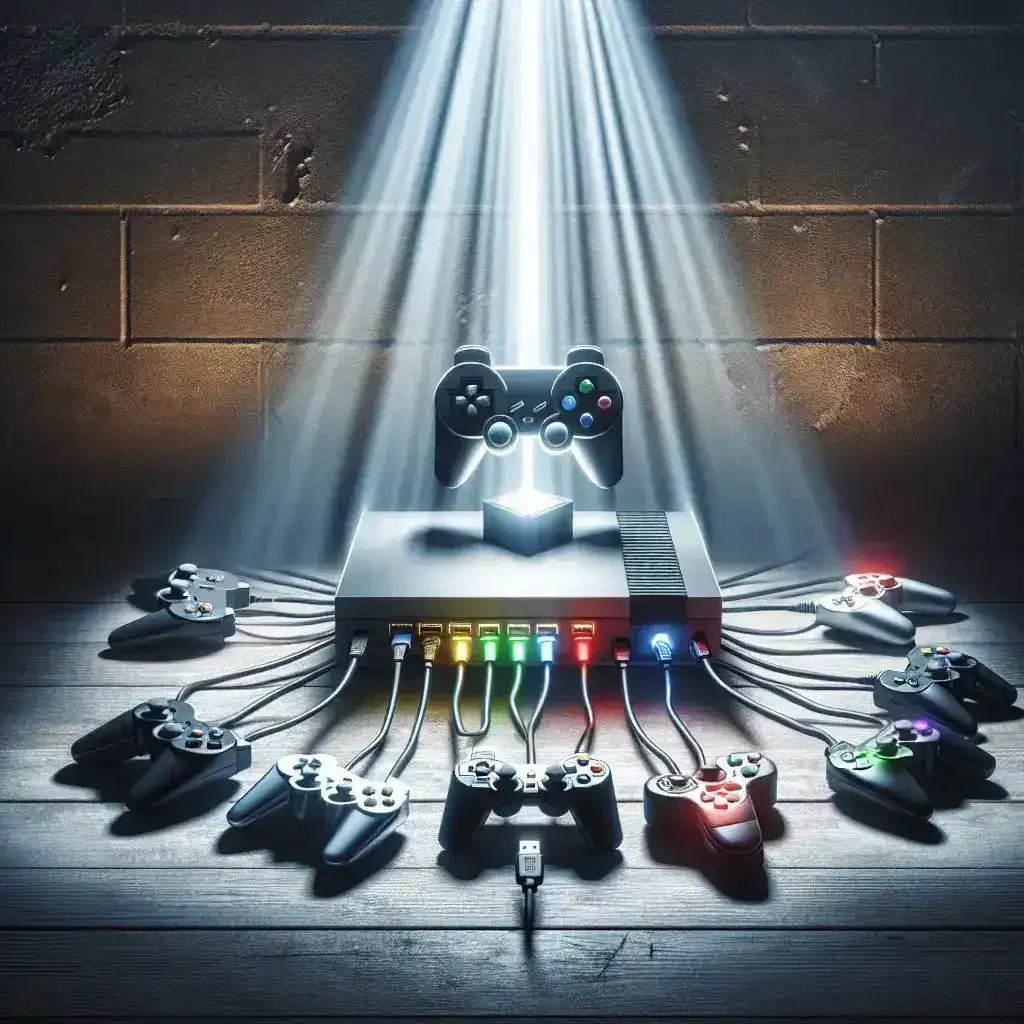In the modern gaming landscape, versatility and connectivity have become essential aspects of an enhanced gaming experience. Many gamers use multiple peripherals, such as controllers, mice, and keyboards, which often necessitate the use of USB hubs. But does connecting a gaming controller through a USB hub affect its performance on consoles? This article delves into the intricacies of USB hubs and their influence on gaming controller experiences.
| Aspect | Connection Type | Performance Impact |
|---|---|---|
| Data Transfer Rate | USB 2.0 vs USB 3.0 | USB 3.0 generally offers better performance due to higher bandwidth. |
| Latency | Direct vs Hub Connection | Using a hub may introduce slight latency depending on the hub quality. |
| Power Supply | Powered vs Unpowered Hubs | Powered hubs can reduce load on the console and offer better stability. |
| Peripheral Compatibility | Device Types | Not all USB hubs support every device type. |
The Role of USB Technology in Gaming
Before we dive into the specifics of USB hubs, it’s essential to understand the role USB technology plays in gaming consoles. USB ports serve as the primary means of connecting peripherals. The most common USB standards you will encounter are USB 2.0 and USB 3.0, with the latter providing greater data transfer rates and enhanced power delivery.
The Impact of USB Hubs on Gaming Controllers
When you connect your gaming controller to a console via a USB hub, there are several parameters to consider:
- Data Transfer Rate: The performance of a controller can be affected by the maximum data transfer rate of the USB hub. Modern gaming controllers often rely on quick data transmission for responsive gameplay. Therefore, using a high-quality USB 3.0 hub may yield better results than a USB 2.0 hub.
- Latency: Introducing a hub between the controller and console can add latency. The extent of this latency often depends on the hub’s quality and design. Higher-end, well-designed hubs tend to minimize any increase in latency.
- Power Supply: The availability of power can affect performance. Powered USB hubs can supply sufficient energy to multiple connected devices, reducing the chance of disconnections and maintaining performance quality.
- Peripheral Compatibility: Some USB hubs are not designed to handle all types of devices. A hub that works well with a keyboard may not provide optimal performance for gaming controllers.
USB Hub Types and Their functionalities
There are primarily two types of USB hubs used by gamers: powered USB hubs and unpowered USB hubs. Each type has its advantages and drawbacks, which can influence their effectiveness in a gaming setup.
Powered USB Hubs
A powered USB hub is externally powered and can deliver increased power to multiple devices without drawing too much from the console. Here’s what you should consider:
- Pros:
- Can support more devices without performance issues.
- Stability in power supply leads to fewer connection drops.
- Better suited for high-power devices.
- Cons:
- More expensive than unpowered hubs.
- Requires additional outlet for power.
Unpowered USB Hubs
An unpowered USB hub draws power directly from the console. While they are more portable and less expensive, they have limitations:
- Pros:
- Cost-effective and compact.
- Easier to set up without additional power sources.
- Cons:
- Can lead to reduced performance if too many devices are connected.
- Higher chance for power drop, leading to disconnections.
Best Practices for Using USB Hubs with Gaming Controllers
If you decide to use a USB hub while gaming, consider these best practices to ensure optimal performance:
- Choose a High-Quality Hub: Investing in a reliable, high-quality USB hub can make a significant difference. Look for hubs that support USB 3.0 or higher.
- Prioritize Powered Hubs: Whenever possible, opt for powered USB hubs, especially if you plan on connecting multiple devices.
- Limit Device Connections: Connecting numerous devices can overload unpowered hubs, leading to performance issues. Aim to connect only essential peripherals.
- Test Latency: After setting up your hub, play a few gaming sessions to check for any noticeable latency issues.
Conclusion
In summary, using a USB hub can affect the performance of gaming controllers connected to a console, primarily through data transfer rates and latency. While high-quality powered hubs can provide a seamless experience, poorly designed unpowered hubs might introduce challenges. By following best practices, gamers can ensure that their peripherals remain responsive and their gaming experience stays intact.
Ultimately, if you are considering using a USB hub, it’s crucial to research well and choose devices that cater to your gaming needs to optimize your setup for the best performance.
